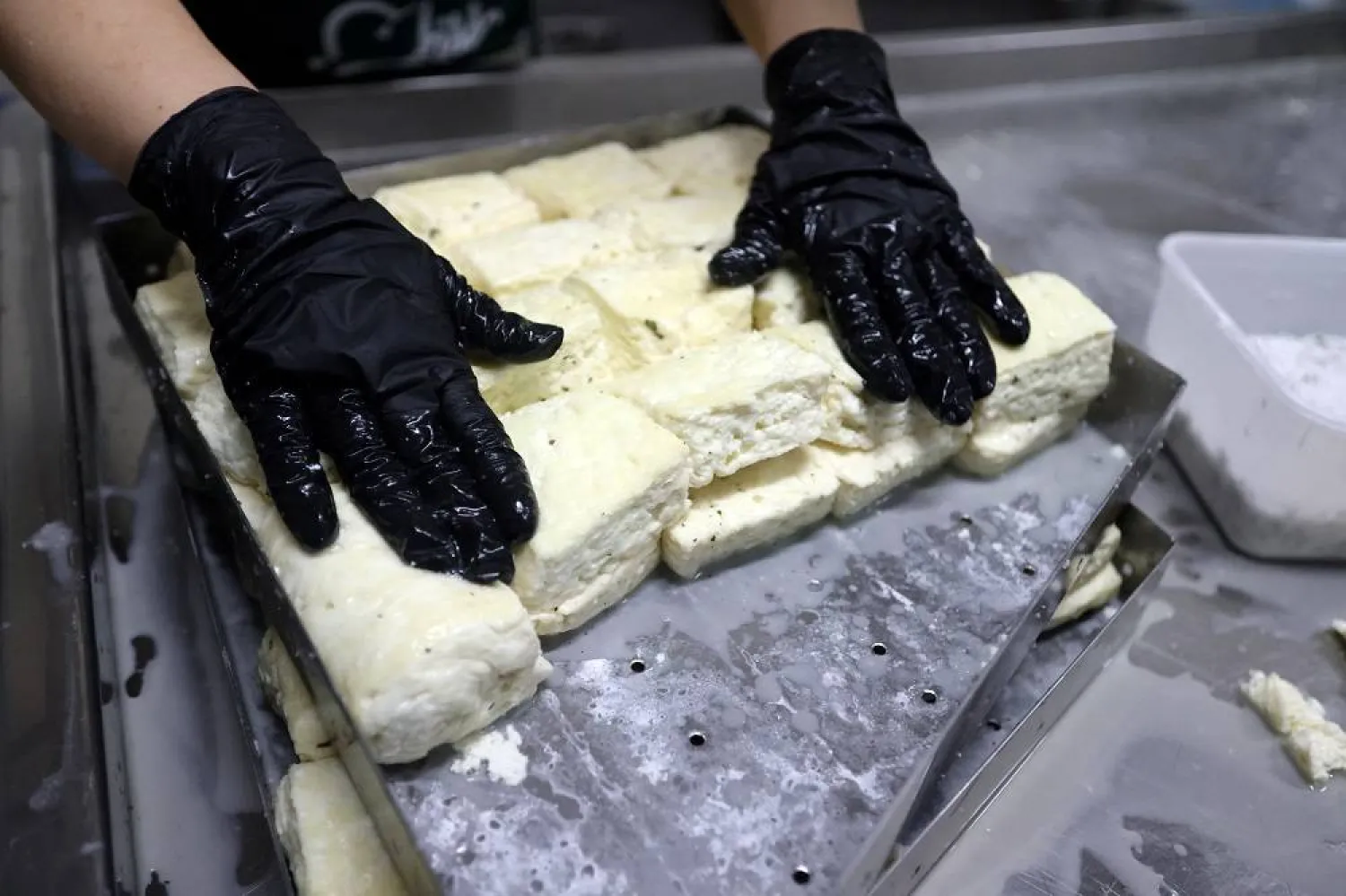On a cold winter evening in a car park in the Cypriot capital Nicosia, queues are already forming before former airline pilot Pantelis Panteli arrives in a small van to sell his produce.
After being made redundant following the closure of Cyprus Airways in 2013, Panteli decided to try his hand at cheese-making. He hasn’t looked back.
Now the newcomer has become an unlikely bastion of an old tradition amid a bitter legal battle about the ingredients of Cyprus's prized Halloumi. Should it be made from cow's milk - which now forms the bulk of exports and has a mellower taste - or from tarter goat and ewe milk, which some purists swear by?
Panteli makes Halloumi exclusively from ewe's milk - even though some dairy farmers on the Mediterranean island say that method is not viable.
"Nobody is making the real thing anymore, and that is our aim," he told Reuters, standing in a pen with about 300 noisy sheep at his farm in Kokkinotrimithia, west of Nicosia.
Panteli started making Halloumi with guidance from his mother-in-law. Now he has his own "Kouella" brand, Cypriot for ewe.
"It was all trial and error with a small pot, then a bigger pot - and just like Steve Jobs - in our garage," he said.
Panteli only has a permit to sell direct to consumers, and is restricted to producing 150 liters of milk per day at a new purpose-built dairy in the farm compound.
But he is proving popular. He alerts customers to his whereabouts on social media, and makes videos on Tiktok and the social media platform X. Within two hours, he is normally sold-out.
Heated debate
Soft, rubbery Halloumi can be eaten raw, grilled, boiled or fried without losing its shape. It is the island's largest export after pharmaceuticals.
Panteli cooks the milk in rennet which allows curdles to form. After resting, the curdles are cut and reheated. He hoists up layered grills from the whey, containing steaming hot slabs of Halloumi, and flips them onto a counter where he salts and folds them. He puts them in brine for a few hours, then packages them for sale.
It has been three years since Cyprus won its status as the only country able to produce and market the prized cheese. In gaining a protected designation of origin (PDO) from the European Union, Cyprus committed to increase the quantity of ewe or goat milk to just over 50% by July 2024.
But the dispute about ingredients has triggered farmers demonstrations. Industry stakeholders say ewe and goat's milk is highly seasonal, and could therefore have an impact on production capacity. Cheese makers had threatened to shut their dairies because there wasn't enough milk, while cattle-breeders are angry at the threat to the market for cows' milk.
Authorities now plan to push back full compliance with the specifications to 2029.
Nicos Papakyriakou, director-general of the cattlebreeders association, said that based on an older 1985 trade standard, accepted ingredients for Halloumi were not only goat and ewes' milk, but cows' milk as well.
He says it is the mellower cows' milk that has allowed Halloumi to capture overseas markets.
"The PDO says it should smell like a farm," he said, referring to official product specifications that Halloumi should have a 'barnyard' smell.
"It would smell like goats! What consumer abroad would buy that?" he said.









